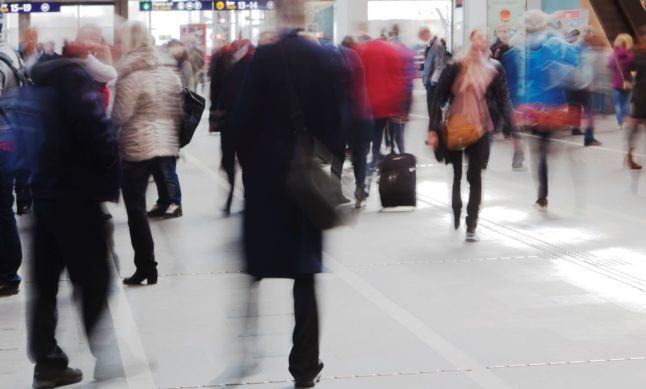In addition to fulfilling their diplomatic roles, embassies offer several vital services to their nation’s citizens living abroad.
Whether it’s clarifying questions, offering assistance with urgent matters or renewing passports, many living abroad will use their embassy’s services at some point.
There are around 10,000 American citizens living in Norway, and the most common questions that the U.S. Embassy in Norway receives are regarding travelling as a dual citizen and the citizenship rules for children born in Norway to an American parent.
This is according to the U.S. Embassy in Norway, which told The Local about the most common requests it receives from American citizens.
Thankfully, the U.S. Embassy in Norway provided The Local with the answers to the two most commonly asked questions it receives.
Below we’ll go into more detail on the questions and the answers provided by the embassy.
Question: We are US-Norwegian dual nationals. My U.S. passport is expired. Can I enter the U.S. on my Norwegian passport?
Answer: Those with an expired U.S. passport will need to have it renewed before they travel to the U.S.
“U.S. nationals, including dual nationals, must use a U.S. passport to enter and leave the United States,” Selim Ariturk, Acting Public Affairs Officer at the U.S. Embassy in Norway, told The Local.
The embassy is responsible for handling passport renewals and applications for U.S. citizens in Norway. The embassy website has a passport wizard, which will point you in the right direction for the forms you need to fill out and what you need to do to renew.
Passports take between three-four weeks to be renewed. Those travelling to the U.S. within the next two weeks and who do not have a valid U.S. passport will need to use the emergency passport service.
Question: I am a U.S. citizen living in Norway. Does my Norwegian-born child have a claim to U.S. citizenship?
Answer: There wasn’t a catch-all answer to this particular question, as the rules may depend on your personal circumstances.
For example, the rules differ if the child was born out of wedlock or if one or both of the parents are U.S. nationals.
However, the embassy did provide The Local with where U.S. citizens could check to see whether their child was eligible to become a U.S. national after being born abroad.
You can check out the rules and what could apply to you here.
Other advice
The U.S. Embassy in Norway also took the time to remind U.S. citizens in Norway to check in with the embassy website and the State Department’s page for travel info.
“Finally, we’d like to encourage your (The Local’s) readers to review the embassy website (no.usembassy.gov) or go to the State Department’s page for travel information, travel.state.gov. Both of these provide more links and greater detail on issues related to travel to the United States or for U.S. citizens interested in travel requirements abroad,” Ariturk said.
READ ALSO: How Americans can move to Norway



 Please whitelist us to continue reading.
Please whitelist us to continue reading.
Member comments